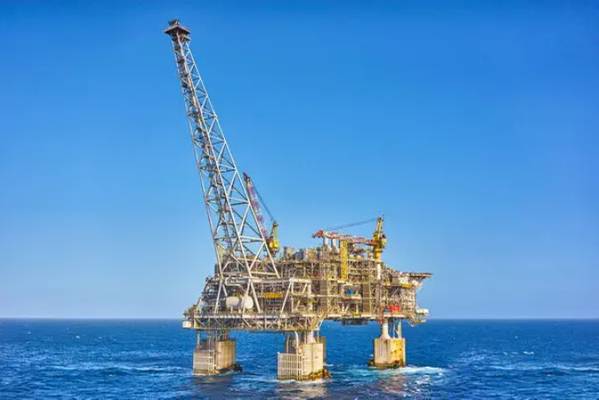
Chevron's two major LNG production facilities in Australia could face daily work stoppages of up to 10 hours next week after unions on Tuesday threatened labour action in a dispute over pay and conditions.
Chevron's Gorgon and Wheatstone projects account for more than 5% of global LNG capacity, and news of the possible strikes sent European natural gas prices surging.
Workers at Gorgon and Wheatstone downstream facilities plan to stop work for seven hours in two blocks on Sept. 7, escalating to 10 hours on Sept. 8 and 11 hours on Sept. 9, according to a document on the planned actions reviewed by Reuters.
A smaller stoppage of three hours is planned at the Wheatstone production platform from Sept. 7, said the document, which details work disruptions out to Sept. 14.
"Members will be participating in rolling stoppages, bans and limitations which will escalate each week until Chevron agrees to our bargaining claim," the Offshore Alliance said in a Facebook post on Tuesday.
"It's set to cost Chevron their LNG exports as (the industrial action) starts to bite," said the alliance that groups together the Maritime Union of Australia and the Australian Workers' Union.
A Chevron spokesperson declined to comment on the Offshore Alliance's latest position, referring to a previous statement that the company "will continue to take steps to maintain safe and reliable operations in the event of disruption."
The unions still have the option to call off the strikes if their terms are met. The unions last week warned that work stoppages could cost Chevron billions of dollars.
A similar action by the same union alliance last year against Shell at its Prelude floating LNG site off northwest Australia cost the company about $1 billion in lost exports in the two months it took to reach a pay deal.
The Dutch September natural gas contract TFMBMU3, which was trading about 3.5% higher on Monday at around 36 euros per megawatt hour (MWh) before the industrial action news, spiked a further 2.40 euros to 38.40 euros/MWh, up 10.4% from Friday.
'HARSHER INITIAL ACTION'
Energy analyst Saul Kavonic said the planned work disruptions would "add inefficiency" to Chevron's operations and may keep the projects from sustaining full production.
"Ten hour work stoppages: it is a harsher initial industrial action than what the unions contemplated for Woodside," he said.
"But it is unlikely to impact production to an extent it will move the dial for global markets."
International energy companies operating in Australia, who are unable to fully make decisions locally, tend to see industrial actions escalate more quickly than domestic companies, he said.
Last week, Offshore Alliance and Woodside resolved worker disputes at North West Shelf, Australia's largest LNG facility, after negotiating higher wages, job security and employee-friendly rosters, averting industrial action.
Australia is the world's biggest exporter of LNG, which is used primarily in Asia for power and heating as many nations attempt to reduce their reliance on coal or oil.
Concerns over possible industrial actions at the LNG facilities of Woodside and Chevron - which account for one-tenth of global supplies - has stoked extreme price volatility in global LNG markets in recent weeks.
(Reuters - Reporting by Renju Jose and Lewis Jackson in Sydney and Florence Tan in Singapore; Writing by Alasdair Pal; Editing by Chris Reese, Shri Navaratnam and Tom Hogue)